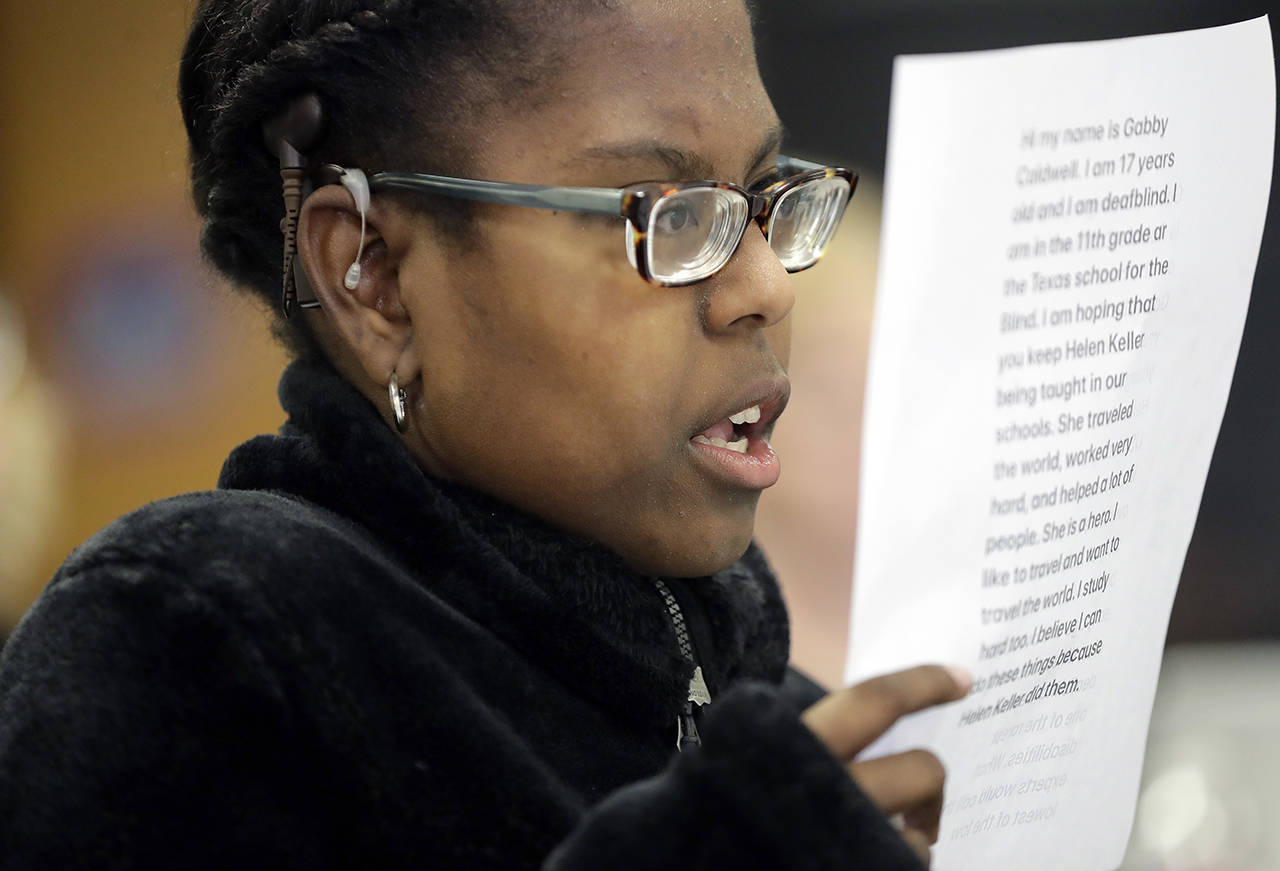By Lauren McGaughy / The Dallas Morning News
AUSTIN, Texas — The Texas State Board of Education heard public testimony Tuesday on proposed changes to the social studies curriculum used in public schools.
About three dozen people signed up to speak to the 15 board members. Most expressed concerns about proposals to eliminate several historical figures and groups in an effort to “streamline” the curriculum and provide more flexibility to teachers.
Among those on the chopping block are Helen Keller, Hillary Clinton and the Women Airforce Service Pilots, the first American women to fly military aircraft.
“Helen Keller is the only point of reference for deaf-blindness because it is unlikely an educator, a government worker, a doctor would have any other interaction with any other person who was deaf-blind,” Robbie Caldwell, who lives in Austin, told the board. “We need Helen Keller to remain in our Texas curriculum.”
Caldwell’s daughter Gabrielle, 17, who is deaf-blind and attends the Texas School for the Blind and Visually Impaired, also testified.
“I am hoping that you keep Helen Keller being taught in our schools. She traveled the world, worked very hard and helped a lot of people. She is a hero,” Gabrielle Caldwell said. “I like to travel and want to travel the world. I study hard, too. I believe I can do these things because Helen Keller did them.”
The state currently recommends teachers educate students about Keller, Clinton and the WASP in different grades as examples of good citizenship. But they may be axed because they’re considered “non-essential.” Many of the figures who might be removed are recommended, not required, to be taught; if cut, teachers would not be prohibited from discussing them.
Several people also testified opposing the removal of the WASP. Erin Miller, who fought to have her WASP grandmother inurned alongside her military brethren at Arlington State Cemetery, said these women can be inspirations to other women as they were for her.
“I flew 1,500 miles from Maryland just to talk to you,” Miller said. “I am here today because of the citizenship example by grandmother and the WASP set for me.”
The board will also hear and vote on several other changes, including replacing San Jacinto Day with Constitution Day in Grade 1 classes, remove a lesson on the Poteet Strawberry Festival from Grade 4 and axing the phrase “describe the optimism of the many immigrants who sought a better life in America” in a section on immigration taught in high school U.S. history.
The board members, who are elected to represent different parts of the state, will take a final vote on the curriculum later this week. Public testimony will continue Tuesday afternoon. Any changes will not immediately result in changes to history textbooks and others classroom instructional items; these materials will be updated another year.
Talk to us
> Give us your news tips.
> Send us a letter to the editor.
> More Herald contact information.

























